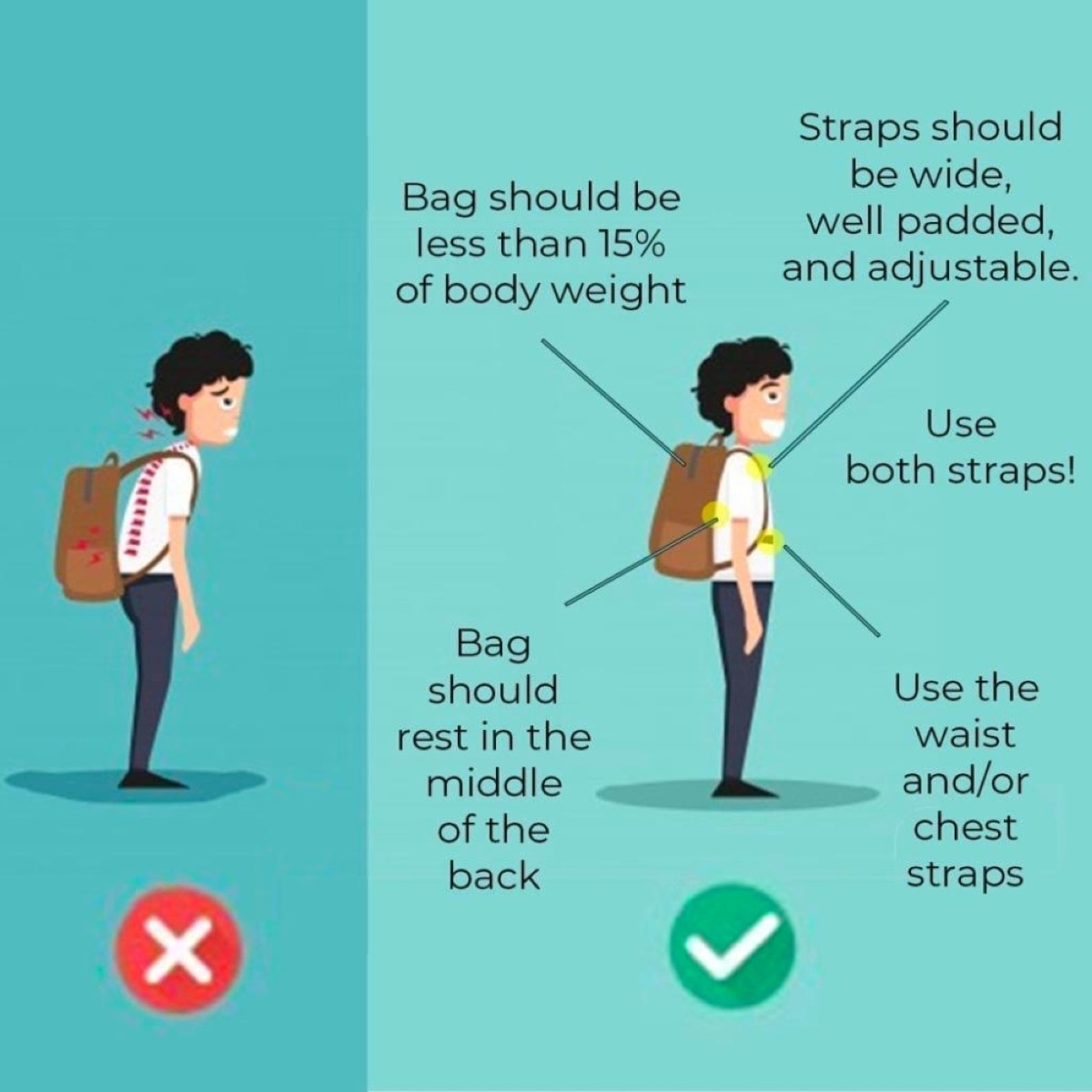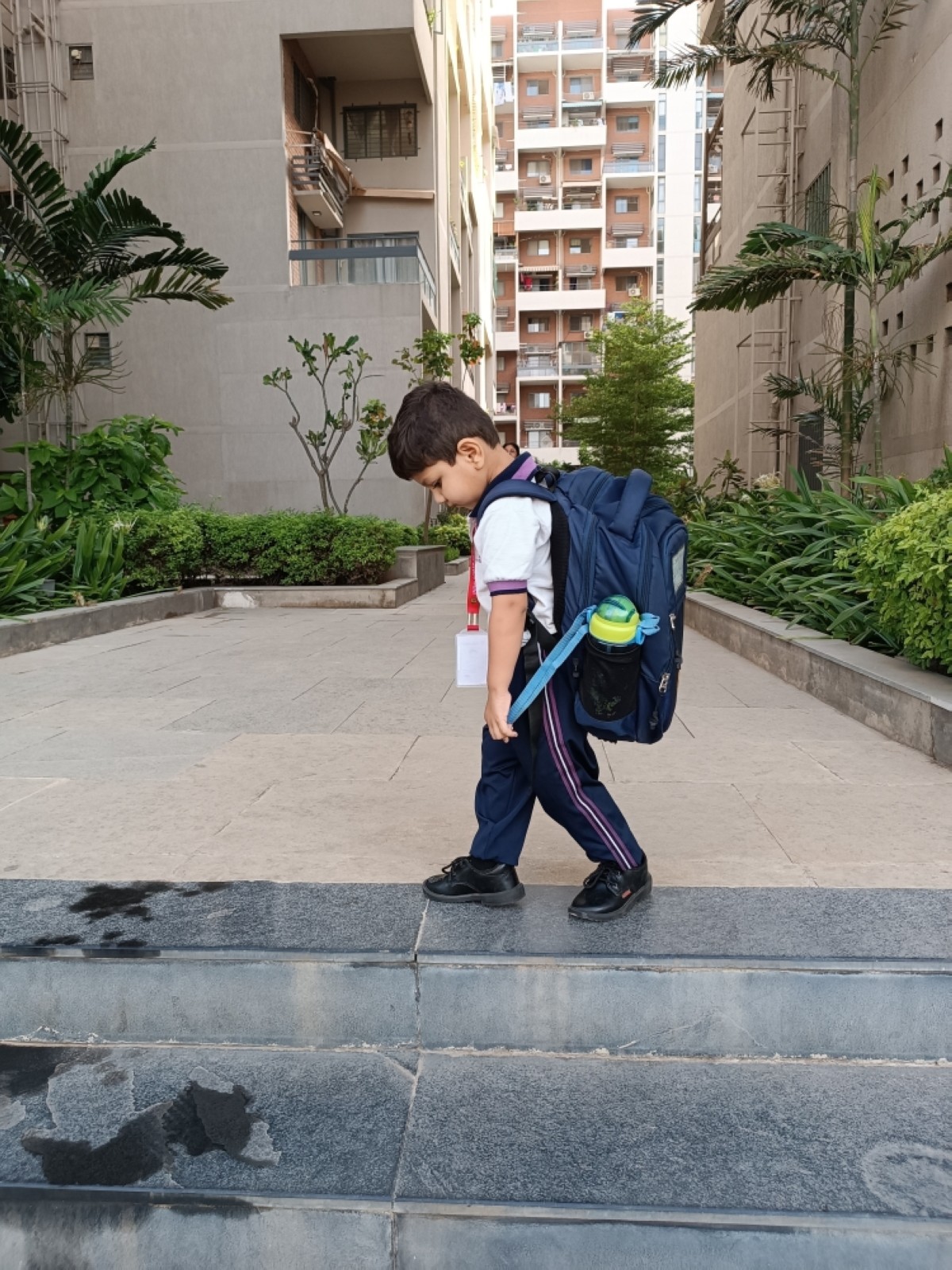KUWAIT: For years, students lugging heavy school bags — described as "weighing like a ton of bricks” by Abu Abdullah, a father of five — have been a persistent problem for families. Despite technological advancements, many wonder why some schools still struggle to address this issue. "Are students paying the price for an outdated education system?” asked a former schoolteacher with 40 years of experience. She questioned whether the curriculum, teachers or administrators were responsible. "No one wants to take responsibility or consider viable solutions,” she added.
"My kids carry a few of the heaviest books in hand so as not to sprain their backs,” said Abu Abdullah, whose children are enrolled in Indian schools. "The curriculum is still text-heavy — no joke,” he wryly added, bemoaning the continued emphasis on rote learning technique and a lack of digitization in most schools. Even after sticking to the daily timetable, school bags are still heavy, and a ban on trolley bags in most schools only adds to the backbreaking burden on students, Abu Abdullah pointed out.
Salma’s 7-year-old son, enrolled in an Arabic private school, carries five textbooks, five notebooks, a lunchbox and a water flask daily. "It’s too much for him, so his dad carries the bag to school,” she shared. For Maria’s 11-year-old son, who is enrolled in a school following the Cambridge curriculum known for its oversized textbooks, the situation is even more difficult. "I often remove some of his books to lighten the load, even though I know his teachers will scold him,” she admitted. Without an elevator at school, her son frequently experiences back pain from climbing stairs.




Impact on posture, health
Dr Ahmed Abdelhaleem Morad, Senior Specialist in Orthopedic Surgery at Mubarak Al-Kabeer Hospital, warned of the health risks posed by heavy bags. "They can cause rounded shoulders, forcing children to lean forward, which reduces balance and increases the risk of falling,” he explained. Dr Morad added that heavy bags strain neck and back muscles, causing headaches, shoulder pain and arm discomfort. Prolonged use may lead to deformities such as kyphosis — a slouched or hunched back that can negatively affect posture and health.
He advised that school bags should weigh no more than 15 percent of the child’s body weight and sit in the middle of the back to distribute weight evenly. Straps should be wide, padded and adjustable, with both straps used to avoid strain on one shoulder. Waist and chest straps also help maintain good posture and enhance stability.
Toward Digital Solutions
The retired teacher urged schools to embrace the digital age by making textbooks available in PDF format through learning management systems (LMS) or platforms like Microsoft Teams. "We live in the AI era, and everything can be accessed in the palm of our hands,” she said.
Parents have also suggested introducing lockers in schools to reduce students’ load. Some schools, particularly American ones, have already implemented such solutions. Noura, a mother of three, noted that her children’s school uses iPads and laptops to access online resources, reducing the need for heavy bags.
The former teacher stressed the need for better syllabus planning, suggesting thinner notebooks and dividing the curriculum across terms. Salma echoed this sentiment, saying schools should prioritize "quality over quantity” to reduce the number of subjects students manage daily. "Instead of focusing solely on completing the curriculum, schools should consider how much information students can realistically absorb in one day,” she said. The call for modernization is growing louder as more parents and educators advocate for thoughtful, student-centered solutions to ease the physical burden of learning.

